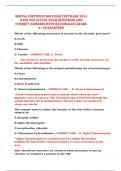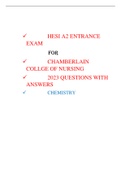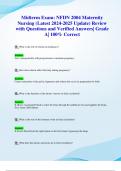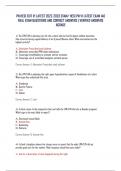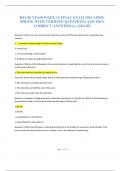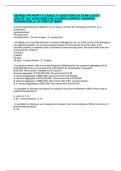Exam (elaborations)
Straighterline Introduction to Physics (lab) PHY250L Lab 10 Thermodynamics COMPLETE Worksheet (New Version August 2024) Scored 100%
- Module
- Institution
Straighterline Introduction to Physics (lab) PHY250L Lab 10 Thermodynamics COMPLETE Worksheet (New Version August 2024) Scored 100%
[Show more]






